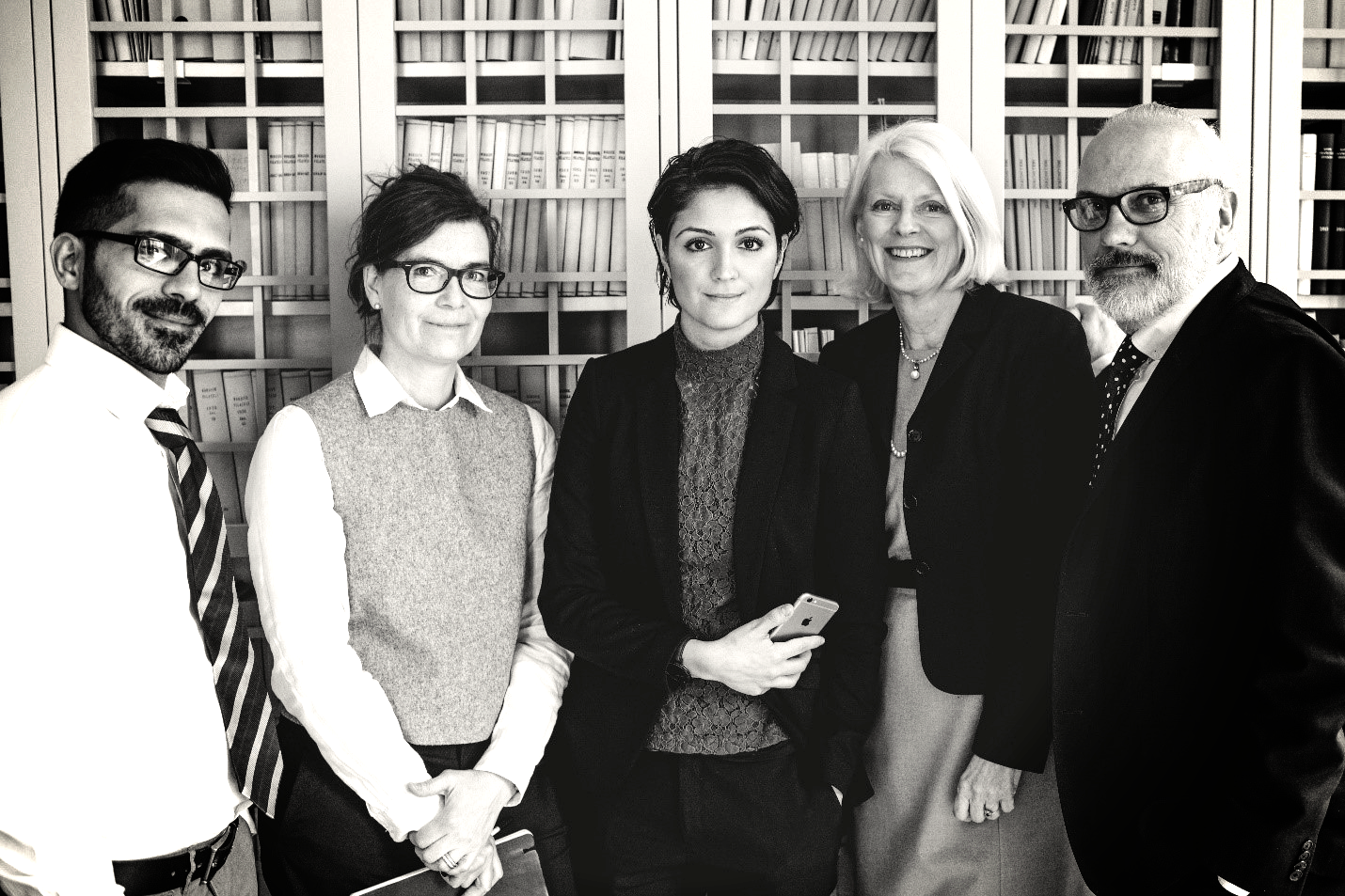Political Oppression

All people have a right to work to solve problems to improve the quality of life for themselves and others. We also have the right to speak up on issues and to offer solutions based on our own life experiences. In doing so, we can work together with others to create a freer world and better quality of life for everyone. In fact this freedom is what the United States of America was founded upon.
Political oppression leads to silencing our voices and can even lead to exclusion, murder, incarceration, and even war. It can create societal stagnation and decline and strip away individual rights, freedoms, and access to basic human needs. No one should ever be afraid to engage in political discussions that are designed to improve the quality of life for any and all people.
Internalized
Internalized political oppression occurs when a person denies their authentic beliefs or adheres to a political view or political party because they think they should, or dislikes themselves because of their political views or political party affiliation.
Institutionalized
Institutionalized political oppression happens when it is the policy or practice of a group, business, organization, or government to treat people differently because of their political views or political party affiliation.
So What Can We Do About It?
Rejecting and Dismantling the Partisan Lens
The first step in rejecting political oppression is saying it’s not okay, and helping ourselves and others to dismantle the “Partisan Lens.” The partisan lens assumes that a person’s entire set of beliefs, life experiences, and personal priorities can be predicted based on their affiliation with a political party. It categorizes people into conservative, moderate, progressive, or liberal. It also assumes that people who are affiliated with a party other than one’s own are inherently different and cannot learn, grow or engage in thoughtful dialogue. Tragically, this lens also assumes that there is little or no common ground among people of different political party affiliations.
Importantly, this lens often leads to the dehumanization of those who are not in the same party as oneself, and creates a “team sport,” “win or lose” atmosphere with regard to human rights and basic societal policy. Rather than focusing on building consensus and incorporating everyone’s values and concerns into a healthy policy, the focus is on winning one’s own policy (or “side”) above all else. The team sport atmosphere can lead to name-calling, shaming, bullying, and immature behaviors. Unfortunately, the partisan lens can be a significant barrier to developing healthy policies and laws.
Spectrum-Based View of Humanity
What is “Politics” anyway?
Politics is a term we use to broadly categorize policy-making, or rule-making in our societies. While we’re all individuals and have individual human rights, we often come into situations where our rights intersect with the rights of others. For example, a stop sign at a four-way intersection allows each of us to travel the direction we want to go, but ensures we don’t crash into one another on the way.
In addition, there are things that are more easily accomplished if we combine and share our resources, rather than doing it ourselves. For example, if every homeowner had to buy a fire truck and hire someone to put out fires, it would be costly and inefficient. In most cases, their personal fire department would be on standby waiting for something that may not even happen. However, if everyone chipped in together (usually through paying taxes), then there could be one fire department for everyone in case of a fire.
Generally speaking, politics refers to problem-solving that is designed to address areas where our rights intersect (like the stop sign), and to leverage our shared and combined resources for the public good (like the fire department).
Personal Priorities
While nearly every situation we encounter can be considered a “political issue,” many people find that they have just a few key values and priorities that are most important to themselves and their loved ones. This can range from economic policy and health care, to racism, family law, and veteran’s services. As we get older or our circumstances change – and as issues are resolved – our priorities tend to change and evolve as well.
Problem-Solving
Each of us has the ability to engage in problem-solving, and to come up with solutions we think are best. In fact, many of America’s most important advancements have come from ordinary Americans who bring forth their own ideas and inventions. Generally speaking, our constitution calls on us to answer yes to the following questions when we engage in problem solving at the community level:
- Does it promote equality, fairness, and unity among all Americans?
- Does it ensure a fair and equitable justice system?
- Does it promote domestic tranquility and harmony, or help us to all get along?
- Does it safeguard our national defense?
- Does it promote the general welfare by securing access to our basic human needs (i.e. housing and education), or leveraging our shared resources for the common good (i.e. things that are cheaper and more efficient if we all chip in like healthcare, roads and bridges, etc.)?
- Does it uphold, secure and advance individual rights, civil rights, and our constitutional rights?
We each have the ability to take our solutions directly to the public or to decision-makers if we choose. The 1st Amendment to the U.S Constitution includes our right to free speech and to make our voices heard.
Types of Government
Government is what we call the institutions we use to make policies and rules for our communities. There are many types of governments that have been used throughout human history.
- An absolute monarchy is when a single person is able to make all the rules. This person inherits their role from their bloodline and is not elected. Their titles could include kings, queens, and emperors.
- A dictatorship is similar to an absolute monarchy, except their role is secured through military force, rather than through a bloodline.
- A democracy is a form of government where all the people of a jurisdiction have the right to vote on the rules, and the majority wins. The margin for majority can be different based on the guidelines set. For example, a 51-49 percent majority can pass a law, but this means nearly half of people disagree. Whereas a 60-40 or 70-30 percent majority vote means that greater consensus has been achieved.
- Democratic processes can be done through a direct vote on an issue (such as a general election), or through a representative process where an elected official (such as a senator or City Councilperson) votes on the people’s behalf.
- A republic is a form of representative democracy where individual rights are secured regardless of majority rules. This means there is some mechanism that prevents the majority from infringing on individual rights and access to basic human needs in the rule making process.
Politicians
Like most countries on Earth today, the United States of America is intended to be a republic. This means that each person in our country has an equal say in how we do things. Instead of all of us voting on every issue, we use a democratic – majority rules – voting process to elect politicians to represent us and engage in problem solving on our behalf. In our republic, individual rights are protected by our constitution and by the U.S. Supreme Court. A politician’s job is to understand and represent the diverse views of all the people who live within their geographic area (or jurisdiction) when they engage in problem-solving. This includes people they may or may not personally agree with, but are the people they represent nevertheless.
Political Parties
A group of people who share common political priorities is often called a “political party”. They work together to create problem-solving strategies before engaging with the larger group of decision-makers. This can be helpful in amplifying the voices of stakeholders and people with lived experiences to make sure their voices are heard in decision-making. Healthy political parties also commit to working together with other political parties and decision-makers to build consensus and ensure voices that might not have been heard in their own party are still represented in the final policy. These types of policies are called “non-partisan”, and truly seek to benefit all people. There is no requirement that politician become a part of a political party. They can learn about the values, beliefs, priorities and challenges people face by engaging directly with the diverse people who live in their communities. This type of politician is often called an “Independent.”
Political Party Affiliation
Many people vote for a politician based on their political party affiliation because the party’s political priorities are the same as their own. However, many people also find that a party’s entire platform or strategies does not align fully with their own beliefs. This can be a particular challenge where there are too few parties to choose from. However, voters and politicians in America have the right to join an existing political party, to create their own political party, or to remain an independent voter or politician free from party affiliation. As voters, citizens or residents of the United States, we are encouraged to explore the hundreds of political parties that are in the United States today to see if there is one that best represents all of our interests and priorities.
Oppression Within Political Parties
Unfortunately, some political parties include oppression in their stated policy platforms. This can include policies that inhibit a person’s individual rights, civil rights, constitutional rights, or access to basic human needs. In addition, some platforms may disregard the unfair impact a policy might have on some Americans. It’s important to remember oppression is never okay, even when it’s part of a political party we might like to belong to.

Practice Challenging Beliefs
If we use a “partisan lens” or we have developed a prejudice or bias against someone based on their political party or affiliation, we can change our beliefs and thought patterns. For those who are just beginning, it can take some time to completely transform our thought patterns.
Beliefs to Challenge
I can assume things about people based on their political party affiliation.
Human First Lens
I recognize we all have life experiences that can lead us to a conclusion about the best policy based on our current worldview. I also recognize that learning about how someone came to their conclusion and sharing how I came to mine can help us both achieve a better understanding and maybe come to an even better policy result or decision.
Beliefs to Challenge
It’s okay to use a policy platform to restrict the rights of others.
Human First Lens
I recognize that while I may have strong beliefs about what other people do with their bodies, minds, and souls, I cannot support a policy that infringes on their individual rights, civil rights, or constitutional rights.
Beliefs to Challenge
I have no reason to engage someone who votes a differently than I do.
Human First Lens
I have every reason to share my story and listen to the story of others so that we can come to a better understanding of one another and engage in problem-solving that benefits both of us. Policy impacts all of us.
Beliefs to Challenge
I have nothing in common with people who vote differently than I do.
Human First Lens
It’s likely I have a lot of things in common with all other people. Finding out why a person votes the way they do and sharing about why I vote the way I do can help us learn more about each other on a personal level – rather than just as a political party affiliate – and find the things we have in common.
Beliefs to Challenge
I think certain people should be a part of certain parties.
Human First Lens
I recognize all people have personal priorities, and that they choose their political affiliations in the best interest of themselves and others the best way they know how at this point in time.
Beliefs to Challenge
I think all people who are part of a political party think a certain way.
Human First Lens
I recognize many people choose a political party based on their main priorities, and I cannot assume things about their beliefs or abilities without speaking to them. I can learn more about a person’s decisions by talking with them and creating a relationship.
Beliefs to Challenge
I use or have used derogatory language to describe people based on their politcal views or affiliation.
Human First Lens
I recognize that politics can be extremely frustrating, especially since some proposals can or do impact my daily life. I remember that I am fighting oppression and not the person or party itself.
Beliefs to Challenge
I should try to sway others to see things the way I do.
Human First Lens
I should try to engage in healthy dialogue to find a solution that works for everyone, and I recognize the policy I have presented may be improved upon, too.
Beliefs to Challenge
If I see someone supporting a particular candidate, I make assumptions about them as a person.
Human First Lens
I recognize that all people have different reasons for supporting a particular candidate. If I have questions, I can ask that person, and engage in dialogue to learn more about their beliefs, and to share mine as well. I remain open to the possibility that we have more in common that I might initially believe.

Healing From Political Oppression
Political oppression is not okay. It can make a person feel isolated, and that their own experiences and problem-solving abilities are not valid or valued. It’s important to remember that your experiences and convictions matter, and that you have every right to participate in laws and policies that impact you and your loved ones personally. Making a list of your priorities and recommitting to engaging the advocacy process with a group of like-minded people can aid in the healing process. In addition, if you feel your rights have been violated or your voice has been silenced or threatened, you may also wish to contact the United States Department of Justice. If you have experienced trauma related to political oppression or violence, speaking with a trauma-informed counselor might also provide relief.
If you have come to realize you may have engaged in political oppression, it’s important to make a commitment to listening to and learning from others from this moment forward. A commitment to upholding basic dignity, worth and respect for people you disagree with is as important as upholding these things for people you do agree with.
Interrupting the Cycle
Interpersonal
We can interrupt the cycle of political oppression by calling it out when we see it. We can reassert the importance of basic community, civility, and dignity in our political conversations, and set forth intentions to ensure that everyone’s concerns and issues are addressed in policy making whenever possible. We can promote consensus building over simple “majority rules”, and stand up for individual rights, as well as the rights of groups and parties.
Systemic
We can also commit to recognizing the difference between disagreement and oppression. When we realize oppression exists, we can make sure to firmly reject policies that do dehumanize people or violate a person’s individual rights, civil rights, constitutional rights, or access to basic human needs.
In addition, we can do our part to ensure the Supreme Court of the United States remains a protected institution to ensure no one’s individual rights are violated by majority-rules policies and decisions.
The first step, though, is to speak up when we recognize oppression.
Explore
In the United States today, there are two major political parties. However, there are also several other parties, including the Green Party, Libertarian Party and many more. We are often asked to choose just between the two main parties, or to identify ourselves as “conservative”, “liberal”, “progressive”, “moderate”, or “left” or “right”. An important way to learn more about ourselves and dismantle the partisan lens is to allow ourselves and others to define who we are without using a political party affiliation. You can answer these questions in your head, say them out loud, or type them in. If desired, you can also print your answers, and/or enter your email address to have them sent to you for future reference.
Survey
The following survey is completely optional. Answering these questions can help future sociologists, educators and researchers develop better tools and teaching materials.
Support the Human First Lens
If you learned something new or if you believe this information is valuable to others, please consider supporting the Human First Lens.
